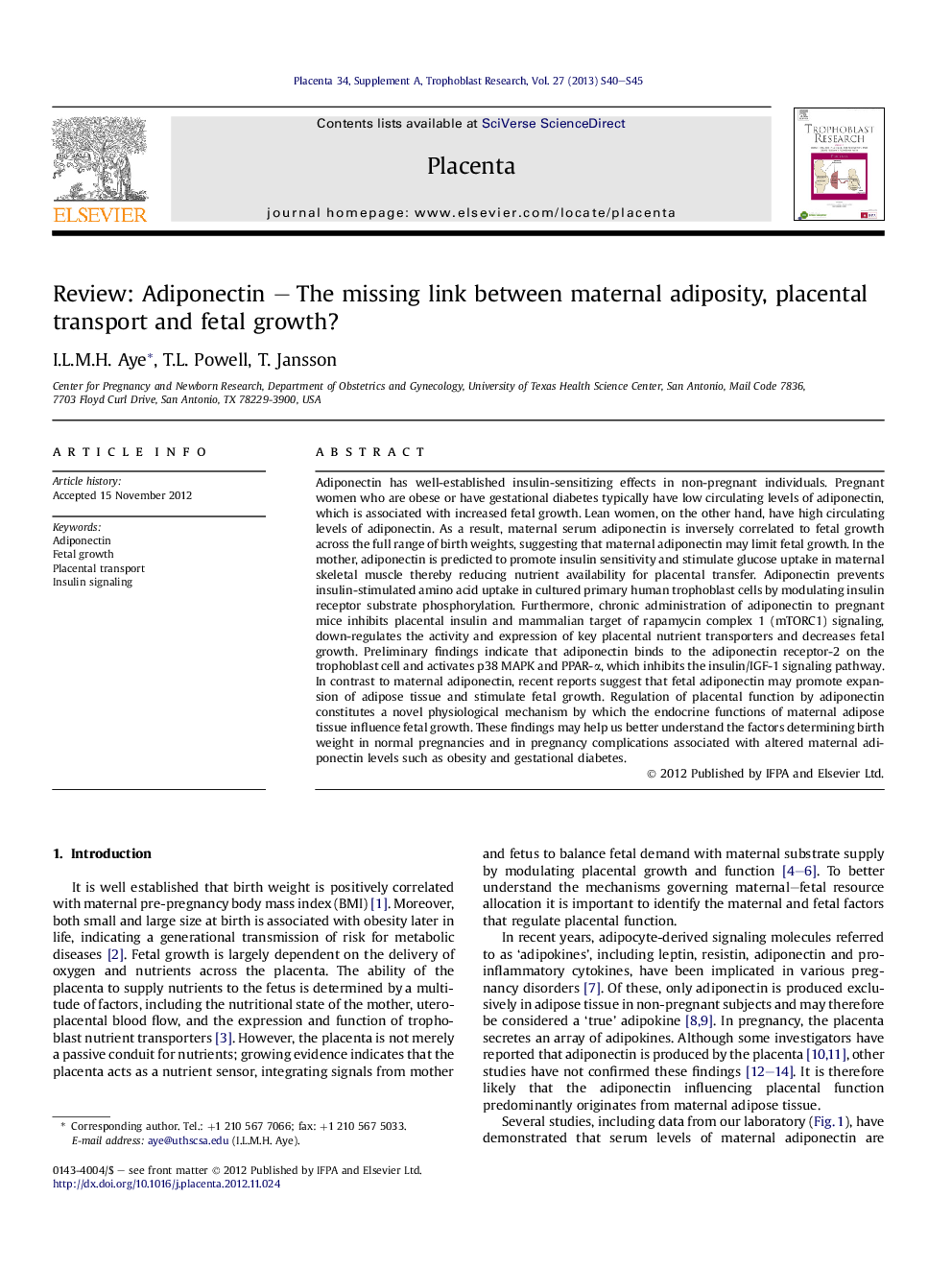| Article ID | Journal | Published Year | Pages | File Type |
|---|---|---|---|---|
| 5895131 | Placenta | 2013 | 6 Pages |
Adiponectin has well-established insulin-sensitizing effects in non-pregnant individuals. Pregnant women who are obese or have gestational diabetes typically have low circulating levels of adiponectin, which is associated with increased fetal growth. Lean women, on the other hand, have high circulating levels of adiponectin. As a result, maternal serum adiponectin is inversely correlated to fetal growth across the full range of birth weights, suggesting that maternal adiponectin may limit fetal growth. In the mother, adiponectin is predicted to promote insulin sensitivity and stimulate glucose uptake in maternal skeletal muscle thereby reducing nutrient availability for placental transfer. Adiponectin prevents insulin-stimulated amino acid uptake in cultured primary human trophoblast cells by modulating insulin receptor substrate phosphorylation. Furthermore, chronic administration of adiponectin to pregnant mice inhibits placental insulin and mammalian target of rapamycin complex 1 (mTORC1) signaling, down-regulates the activity and expression of key placental nutrient transporters and decreases fetal growth. Preliminary findings indicate that adiponectin binds to the adiponectin receptor-2 on the trophoblast cell and activates p38 MAPK and PPAR-α, which inhibits the insulin/IGF-1 signaling pathway. In contrast to maternal adiponectin, recent reports suggest that fetal adiponectin may promote expansion of adipose tissue and stimulate fetal growth. Regulation of placental function by adiponectin constitutes a novel physiological mechanism by which the endocrine functions of maternal adipose tissue influence fetal growth. These findings may help us better understand the factors determining birth weight in normal pregnancies and in pregnancy complications associated with altered maternal adiponectin levels such as obesity and gestational diabetes.
